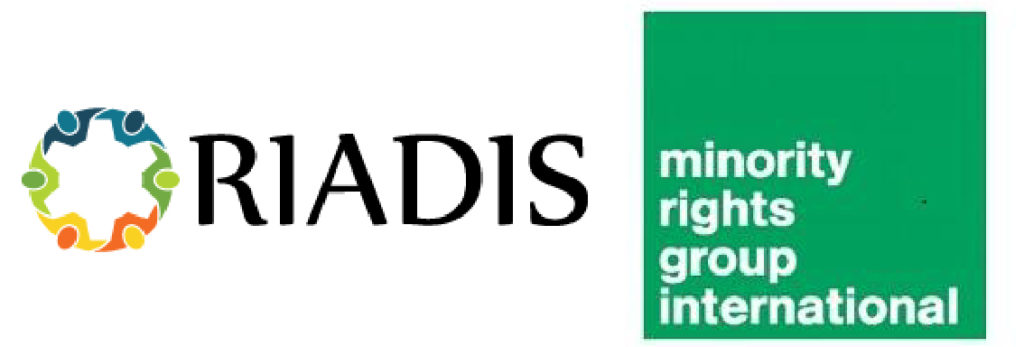2 February 2020

Minority Rights Group International (MRG), the Latin American Network of Non-Governmental Organizations of Persons with Disabilities and their Families (RIADIS) and the Indigenous Persons with Disabilities Global Network (IPWDGN) share recommendations with the Ecuadorian government to improve public policies and the delivery of public services for persons with disabilities belonging to minority and indigenous communities.
The recommendations arise from a field mission to visit indigenous persons with disabilities and their families in the Ecuadorian Amazon and a coalition building meeting on the intersectional discrimination experienced by persons with disabilities belonging to minority and indigenous communities that took place in Quito on 26 and 27 November 2019. The meeting was organised by MRG and the Latin American Network of Non-Governmental Organisations of Persons with Disabilities and their Families (RIADIS) with the support of the Swedish International Development and Cooperation Agency (SIDA) and the participation of the Indigenous Persons with Disabilities Global Network (IPWDGN).
Representatives from twelve Ecuadorian organisations and indigenous and minority communities participated in the meeting. Olga Montúfar, IPWDGN president, led a training session on intersectional discrimination of persons with disabilities belonging to minority and indigenous communities.
During the meeting, Afro-descendants and indigenous persons with disabilities who participated in the event met with representatives from various Ecuadorian government agencies (including, the National Commission for Equality in Disability – CONADIS, the Ministry of Economic and Social Inclusion – MIES, the Secretariat of Human Rights of Ecuador, the National Commission for Intergeneration Equality (CNII), as well as the UN Refugee Agency and the Confederation of Indigenous Nationalities of Ecuador –CONAIE. Participants expressed the difficulties they encounter accessing basic public services, including health care and education, as well as participating effectively in decisions that affect them and their communities.
On the basis of this exchange and the field mission, MRG, RIADIS and IPWDGN have shared a series of concrete recommendations with the relevant Ecuadorian government agencies to improve public policies and the delivery of public services for persons with disabilities belonging to minority and indigenous communities. These recommendations include:
- Adopting mechanisms to ensure that members of minority and indigenous communities with disabilities are able to effectively participate in decisions that affect them;
- Implementing measures to ensure the inclusion of children and teenagers with disabilities belonging to minority and indigenous communities in their local community schools alongside their non-disabled peers on an equal basis;
- Ensuring that members of minority and indigenous communities with disabilities and their families have adequate access to the health and rehabilitation services, which are fundamental to their health and well-being and which are often located in urban centres far away from their homes;
- Implementing measures to ensure members of minority and indigenous communities with disabilities and their families in rural areas have access to adequate assistive technologies, adapted to their living conditions and terrain;
- Ensuring indigenous communities in Ecuador have access to safe, clean drinking water and sanitation given that extractive industries, the use of agro-chemicals and the lack of adequate sewer or sanitation systems have polluted water sources in their territories, causing impairments among members of their communities;
- Providing funding to the indigenous nations of Ecuador and Afro-descendants so that each community can carry out an exhaustive accounting of the number of persons with disabilities in their communities, where they live and in what conditions.
A copy of the recommendations is available in Spanish and English.
English Version:
MRG-RIADIS-IPWDGN-Recommendations-for-Ecuadorian-Government.pdf
Spanish Version:
Recomendaciones-MRG-RIADIS-y-Red-Global-de-Personas-Indigenas-con-Discapacidad.pdf
Notes to Editors
- MRG is the leading international human rights organization working to secure the rights of ethnic, religious and linguistic minorities and indigenous peoples. We work with more than 130 partners in over 60 countries.
- RIADIS is a network comprising 56 organizations of persons with disabilities from 19 countries in Latin America and the Caribbean. We work on promoting and protecting the rights of persons with disabilities in the region through the values of non-discrimination and inclusive development to improve the quality of life and social inclusion of persons with disabilities and their families.
- IPWDGN was created in 2013. Our members come from the seven socio-cultural regions. Currently, our work seeks to create solid regional networks that allow us to provide an up to date assessment of the situation of the rights of indigenous persons with disabilities around the world.
For more information and interviews, contact:
Lara Domínguez, Strategic Litigation Officer at Minority Rights Group International
T: +44 (0)7780 561 390 / E: lara.dominguez@mrgmail.org / Twitter @MinorityRights
Mario Puruncajas, Project Coordinator at the Latin American Network of Non-Governmental Organisations of Persons with Disabilities and their Families (RIADIS)
T: +59 399 257 5410 / E: proyectos.riadis@riadis.org / Twitter: @RIADISorg
